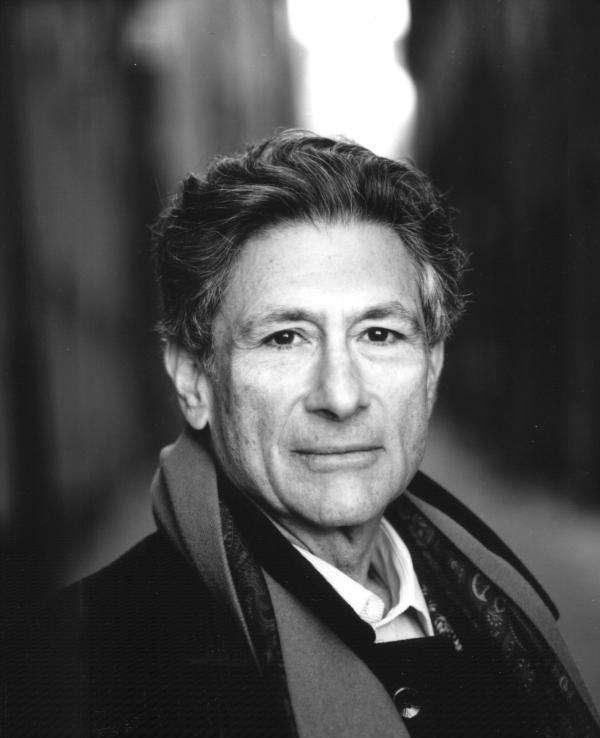
Edward W. Said
Born in Jerusalem in 1935, he attended Western schools in Palestine and Cairo, Egypt, during the British occupation, received a British education, went to the United States in the 1950s, obtained a doctorate from Harvard University, and has been teaching British and American literature and comparative literature since 1963.
Sayyid's writings, known as Orientalism (1978), spearheaded the postcolonial and postmodernist debate. Over the past 20 years, Said has written extensively, with a focus on political observation, cultural criticism, and even music reviews. At the same time, he was actively involved in the Palestine Liberation Movement as an intellectual, and his academic achievements and political participation were remarkable.
Average review score: 8.8
This book summarizes the experience of literary, cultural, and political criticism in recent years for Sayyid, and makes a series of reflections on the important topic of "intellectuals".
He pointedly pointed out that in today's era of developed media and the convergence of political and academic interests, the so-called intellectuals are already a special profession, integrating editors, journalists, politicians and academic intermediaries.
They are involuntarily and often become part of the power structure of the reserve species. On the contrary, among the emigrants who have left their homelands and among the "amateurs" and "outsiders" who are willing to live in heresy, we can see the exemplary style and bones of intellectuals who are indomitable and outstanding.
Average review score: 9.1
Said, a highly influential intellectual of the 20th century, on classical music alone, spanning thirty years, breaking through barriers in music, literature, philosophy, history, and politics, and redefining true music criticism
From Gould, Pollini, Brundell, to Prea, Schiff, Rupp; from Chelibidak, to Barenboim, Levin; from Bach, Mozart, Beethoven, to Wagner, Hindmit, Brez...
Speaking of many great composers, works, great performers and conductors with his deep musical literacy, Saeed interprets the social, political and cultural context of music, explains the underestimated influence of music on society, and sharply criticizes the current situation of the music industry:
Average review score: 8.5
Q: Why are the imperialists so bold today? A: One of the reasons is the lack of a strong and organized and sustained mobilization of counterforces. I wouldn't say it was because of the collapse of the Soviet Union. I think it was the failure of the intellectual class that led to it. Intellectuals are too fond of making small circles, arguing endlessly over definitions and trivial matters.
Culture is a way for "memory" to resist "forgetting". On September 25, 2003, Said died of leukemia, and the book was published at the end of that year as a series of interviews with him by the well-known American media personality Basamian in the last years of his life.
The earliest one began on February 8, 1999, while the last one was completed on February 25, 2003. The 9/11 terrorist attacks coincided with the eventful autumn of the United States and the Islamic world. This series of interviews with Saeed and Basamian covers the war on terror, the war in Iraq, the Palestinian-Israeli conflict, and even contemporary Palestinian music and poetry.
Through the continuation of culture, Sayyid illustrates the core value of popular resistance to cultural, historical, and social change. Culture and Resistance is the last cry of the "Voice of Palestine."
Average review score: 9.5
Because you are an Oriental, you are guilty: such a logical synonym repeat is so universally accepted that you can easily make this judgment without even resorting to European "logic" or "symmetry" of thinking – what an interesting irony!
Orientalism begins with a depiction of the 1975 Lebanese Civil War, which ended in 1990, but the violence and ugly human bloodshed continue to this day. We have endured the failure of the Oslo peace process.
The outbreak of a second Palestinian intifada and the terrible suffering of Palestinians in the Re-invaded West Bank and Gaza Strip, where Israel used F-16 fighter jets and Apache helicopters to carry out routine acts of collective punishment against unarmed civilians. The phenomenon of suicide bombings is a testament to its terrible destructiveness, which certainly has nothing more appalling and prophetic than the events of 9/11 and the subsequent wars in Afghanistan and Iraq.
As I write this, the illegal and unauthorized invasion and occupation of Iraq by the United States and Britain is underway, followed by unimaginable material plunder, political instability and intensified aggression. This is all considered part of what is called the clash of civilizations, which is endless, unquenchable, and incorrigible. But I don't think so.
It's hard to buy now, so you can try your luck at a used bookstore. Or go to the library and borrow it.